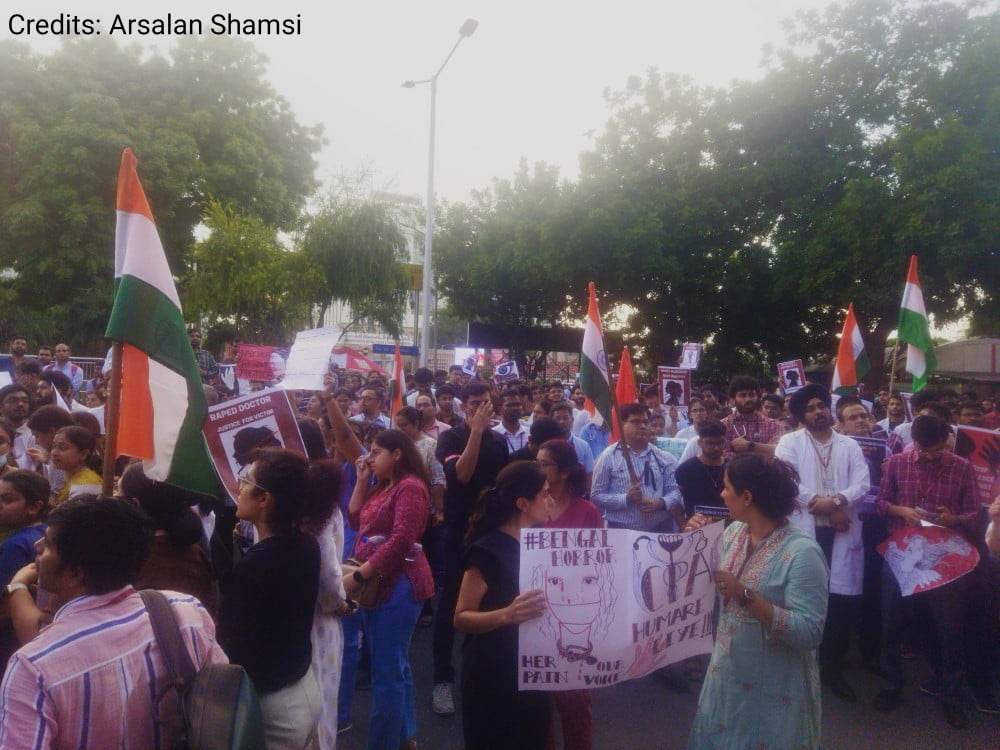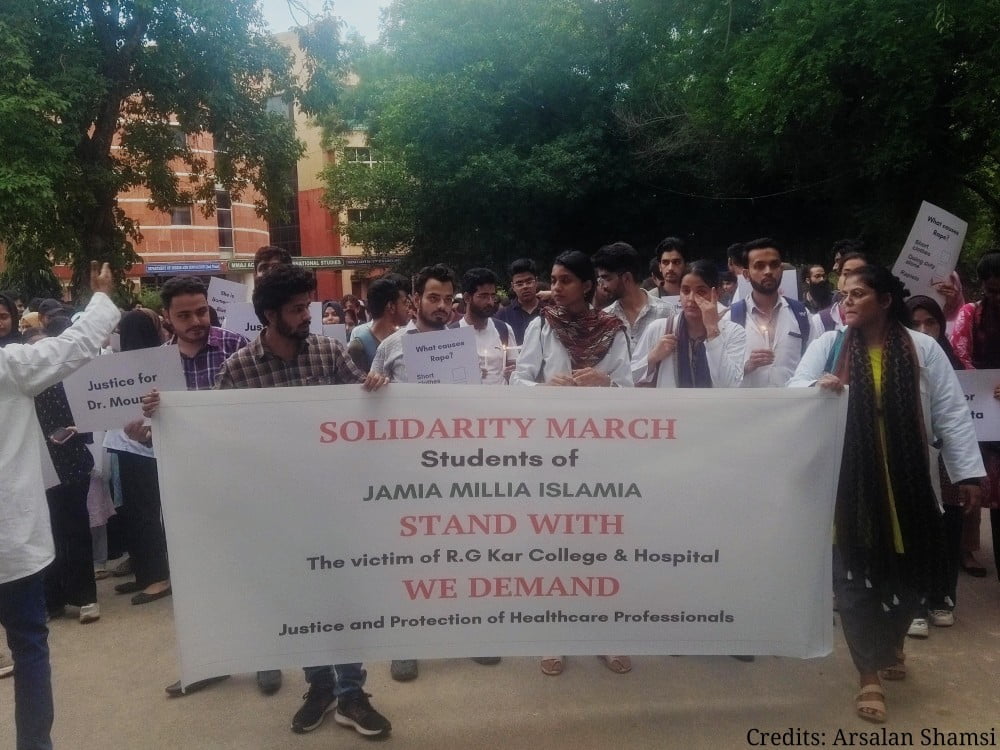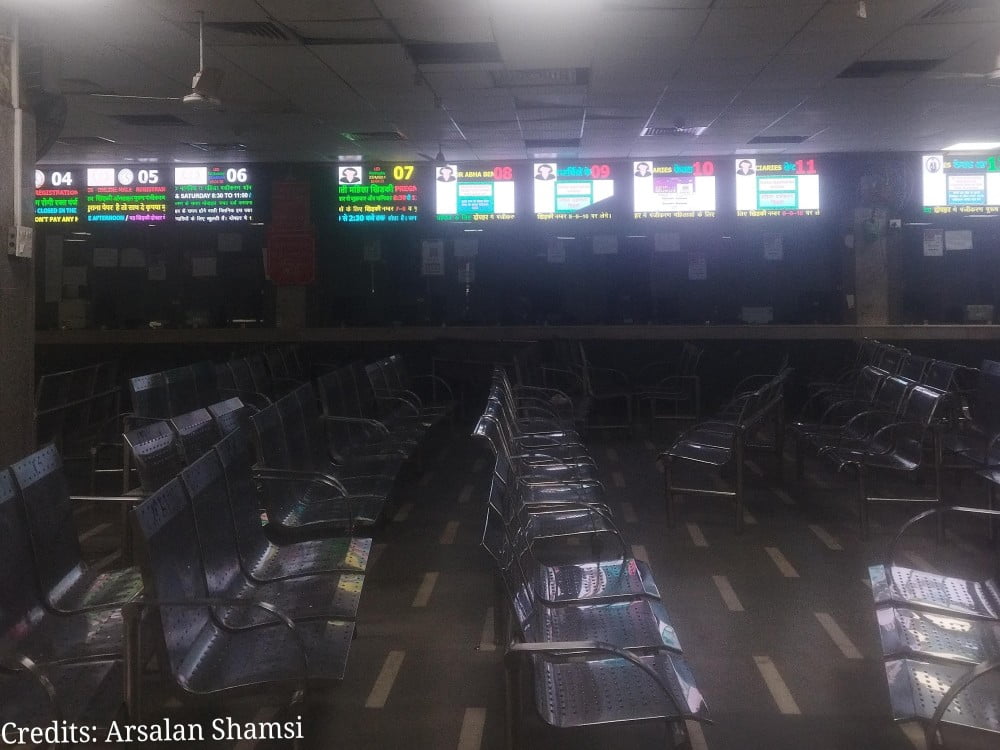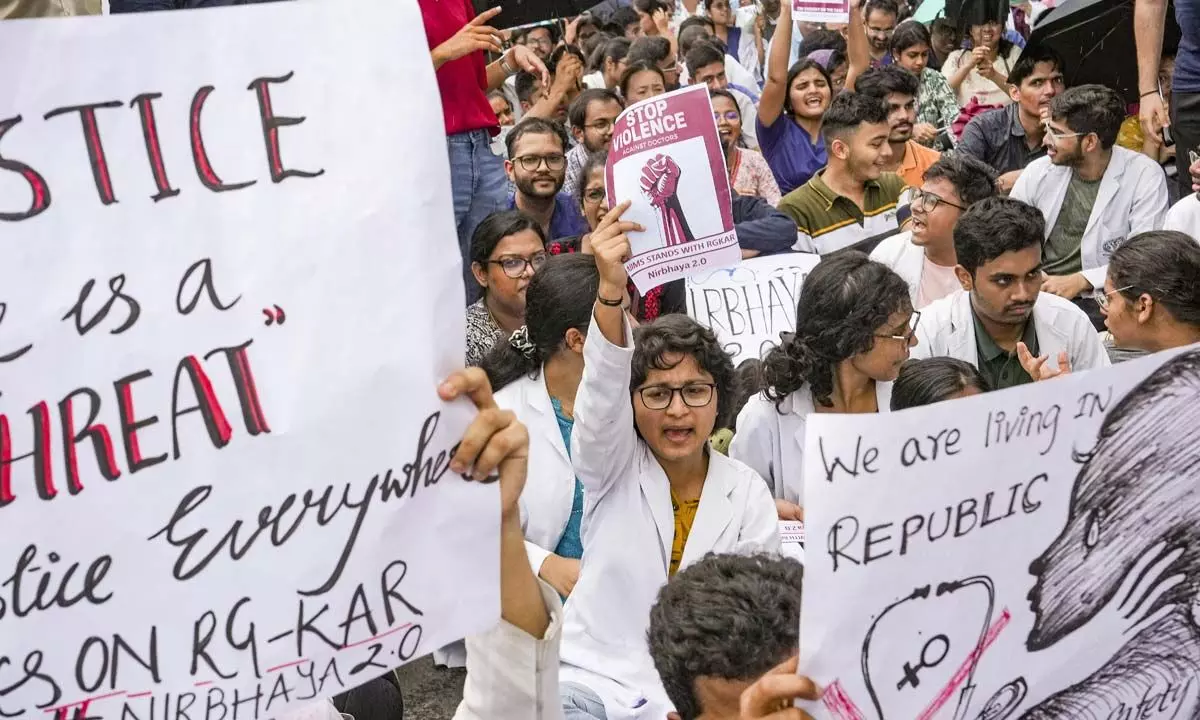New Delhi: The rape and murder of a 31-year-old doctor in Kolkata has put the spotlight on the safety of women in hospitals. A month after the incident, doctors continue to protest across the country, seeking justice and stringent safety provisions for medical practitioners. Doctors say that the incident highlighted the abysmal state of women’s safety in the country and amplified the concerns of students and practitioners, especially those living away from home.
Medical students and doctors share their personal experiences of working in the national capital
Annaysha Mondal, a native of Kolkata, who is pursuing an M.Sc in Nursing (Psychiatry Nursing) at All India Institute of Medical Science (AIIMS) says that rising incidents of harassment and crimes against women back home were a cause of concern. ‘Of late, I have been hearing a lot about incidents of crimes against women in West Bengal. I feel that the state is no longer safe for women. In such a climate, I am apprehensive about returning to my home state,’ said 24-year-old Mondal, who has been participating in protests against the R.G Kar incident.

She is among hundreds of medical students and practitioners across the country who are calling for interventions to curb crimes against doctors, especially women. They are demanding a central law to protect healthcare workers citing rising attacks.
Dr. Rozal Thakur (28), a 3rd-year postgraduate student, who hails from Maharashtra, expressed anger against the lax safety at educational institutes and hospitals.
Dr. Rozal Thakur (28), a 3rd-year postgraduate student, who hails from Maharashtra, expressed anger against the lax safety at educational institutes and hospitals. ‘We are not safe at our workplace and institutes. This incident could have happened to any woman. I could have been a victim too. We are always scared and feel discouraged due to such incidents. These incidents put us in a vulnerable position. We study extensively, and strive to save lives, but get such incidents in return. We want the government to implement CPA to make the working environment safe,‘ said Thakur.
On August 9, a junior doctor was raped and murdered on the premises of Kolkata’s RG Kar Medical College and Hospital. In the aftermath of the incident, protests erupted across the country. The Indian Medical Association announced a nationwide withdrawal of non-emergency services from 6 AM on August 17 for two days. Students staged marches at various educational institutions demanding justice for the 31-year-old trainee doctor.
Protests at AIIMS
The Resident Doctors’ Association (RDA) of AIIMS also announced an indefinite strike in various states. Their demands include the implementation of the Criminal Protection Act (CPA), and fast-tracking of the current case, among other concerns. After the assurance from the Supreme Court on August 22, the strike was called off after 11 days.
Latest from RG Kar medical college and hospital in West Bengal
The Central Bureau of Investigation has taken over the investigation from West Bengal police. Various angles have been reported from Hospital authorities such as offering a bribe to the victim’s family to hide the crime and allegations of corruption against the principal of RG Kar College.

Thousands of women across West Bengal had prepared to join the third ‘Reclaim the Night‘ march on September 8, expressing their outrage over the rape and murder of a junior doctor in Kolkata last month. The demonstration were held to mark one month of the heinous crime.
Protesting resident doctors in West Bengal remained defiant despite the Supreme Court’s order to resume work by 5 p.m. on September 10. On the next morning, the doctors agreed to a meeting with the Chief Minister’s Office but demanded that it be live-streamed. When the CMO disagreed, the meeting was canceled.
On Thursday, Banerjee urged the protesting doctors to return to work, emphasising her commitment to justice for the RG Kar rape-murder victim and the well-being of ordinary citizens.
On Thursday, Banerjee urged the protesting doctors to return to work, emphasising her commitment to justice for the RG Kar rape-murder victim and the well-being of ordinary citizens. She reiterated her stance that she has no personal ambition to hold the CM post but is solely focused on addressing the pressing needs of the state.
Expert opinion from senior doctors
Senior doctors and medical practitioners highlight the challenges that women doctors face in the workplace. These include infrastructural gaps. Dr Shagufta, a clinical physiotherapist at Jamia Millia Islamia, said that medical institutes often do not have proper infrastructure facilities, due to which women feel unsafe. ‘Earlier, I worked in a private hospital. The premises were monitored by cameras but there were infrastructural gaps. The restrooms for doctors and trainee workers did not have locks from inside. As a result, I always felt worried and anxious,‘ said the 30-year-old.
She suggests that a separate resting area should be provided to nurses and female doctors, where males should not be allowed to enter.

Dr Irshad Hussain Naqvi, chief medical officer of M.A. Ansari Hospital at Jamia Millia Islamia said the recent incident in Kolkata is a result of complete security failure. ‘This is not the first time we have heard about such a heinous crime against women. This could happen to women in any profession‘, he added.
The 59-year-old emphasised the importance of round-the-clock security measures, stating, ‘Medical professionals, such as doctors and nurses, are here to save lives, not to defend themselves. They cannot carry weapons while on duty. Therefore, it is crucial that there is 24/7 monitoring of all wards and hospital premises.’
Naqvi added that high-level security at every entrance is necessary to ensure the safety of both the staff and the patients.
Naqvi added that high-level security at every entrance is necessary to ensure the safety of both the staff and the patients.




